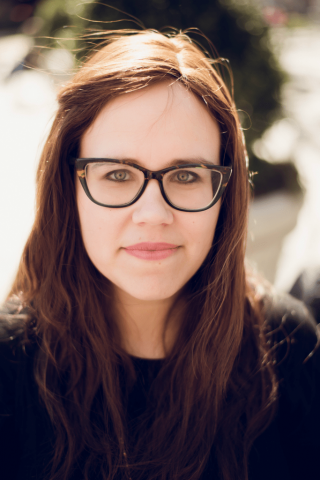SBL Alumni Profile: Tziri Lamm, Part 4

PART ONE | PART TWO | PART THREE | PART FOUR | PART FIVE| PART SIX
In part four of this six-part series, Tziri Lamm, an alumna of the M.A. Program in School Building Leadership Program at Brooklyn College, discusses how she applies lessons from her graduate program in her teaching. The application deadline for the M.A. in SBL is March 31, 2019.
(4/6) “Critical Thinking Leads to Self-Identity”

“I have found, in some of the schools where I have taught, that there can be a large focus on compliance-based education. Growing up, I was taught to respect my teachers and my rabbis because they were my sources of knowledge. I was taught to take as certain truth anything they had to say. At times I felt like asking questions was treated negatively – as some sort of deficiency in me – rather than a praiseworthy skill of critical thinking. I wonder if there is a connection between religious ethos and the way we structure our education.
In my graduate program, I learned about ‘hidden curricula.’ Beyond the curricula that we teach explicitly and intentionally, our hidden curricula comprise the values we teach through our actions, without ever speaking. I wonder if, in religious education systems, our hidden curriculum teaches, in part, compliance, a blind faith. But we as Jews don’t believe faith is blind. Of course, we believe that our rabbis and teachers have the wisdom of the sages to offer, that they stand on the shoulders of great teachers before them, transmitting knowledge that stretches as far back as our sages and earlier. But I think students need to learn to find their own voices within that mix. I am not suggesting that students need to question everything they learn or stage a grand revolution and rebellion. I just think it’s important for girls to find their voices and learn that they should look for answers, listen, explore, compare, evaluate and then find their place within the context of what we give them. In order for their faith to be authentic, it needs to truly be their own. Their rabbis and teachers can guide and support them, but ultimately it needs to come from them.
I believe critical thinking will bring a level of self-awareness that is otherwise outside of their grasp. As a child, I was always smart at school, a ‘good girl’ who followed all the rules. When I got divorced, and that institution that was a large part of my self-identity was gone, it took me a long time to discover who I was. What was my voice? I ask my students to respond to what they learn in my class. I ask them to make assumptions, make assertions, and then stand behind those ideas until they feel it represents what they have to say. I ask them, ‘Does this sound like you?’”
This profile is brought to The Jewish Education Project in partnership with The Layers Project Magazine. Read part five.
